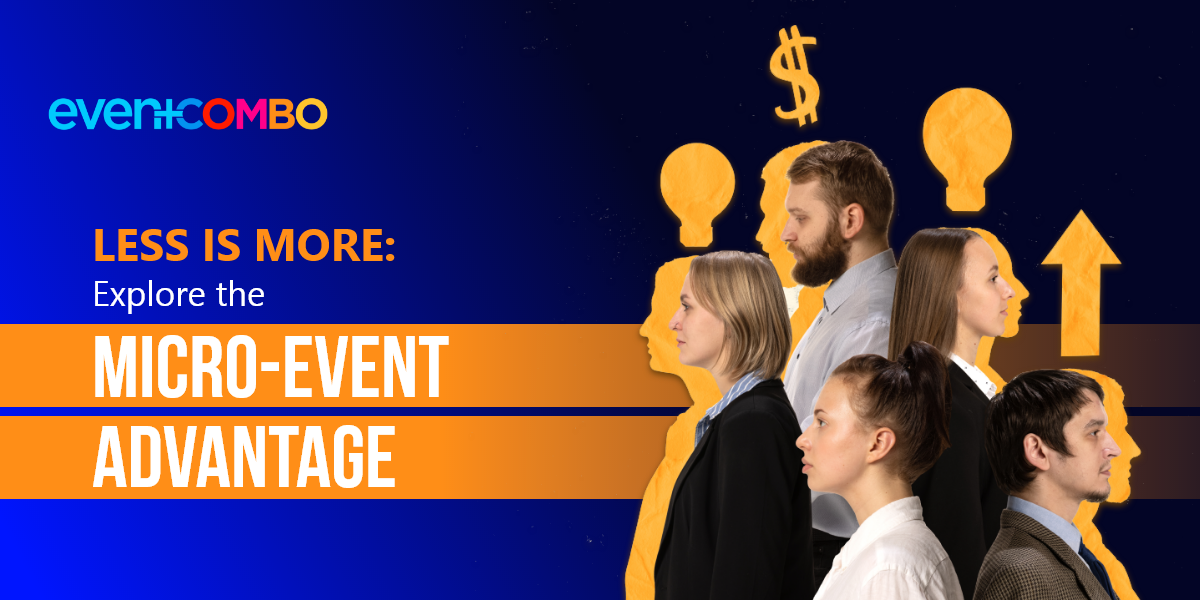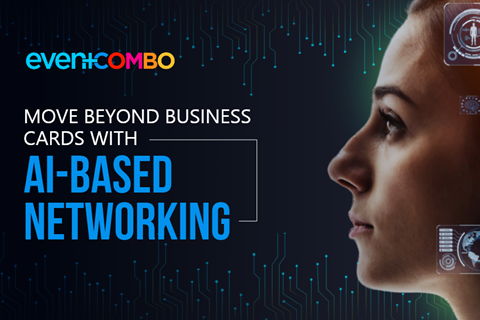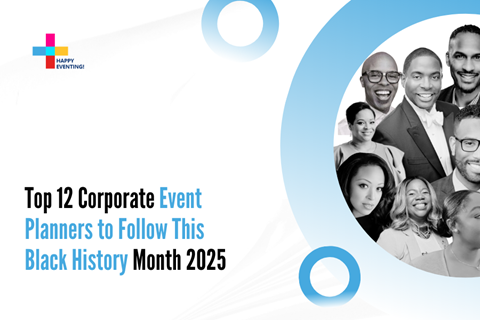

Small things often get overlooked. But not in the world of events. Micro events are steadily rising in popularity and getting more convenient due to event technology. The small, localized gathering may not surpass the prevalence of large-scale events but have acquired a dominant presence of their own. Planners have quickly incorporated it into their marketing strategy, trusting it will captivate their audience.
Let's shed some light on what makes micro events so effective and why they are the talk of the town today.
Micro-events are small and intimate gatherings like niche events tailored for a specific target audience. Also known as satellite events, micro-events are regional events that can be connected with each other for a specific theme or be independent. They can happen during large, multi-day conferences in the form of short workshops or breakout sessions or be a stand-alone function.
Some key examples of micro-events include monthly meetings, webinars, panel discussions, themed dinners, networking events for small groups, and product launches.
Micro-events are held in unique venues, such as those inspired by nature or with airy aesthetics designed to accommodate smaller groups. As fewer people are invited, knowledge sharing and communication between guests is a lot easier and more spontaneous. Nobody feels left out and leaves the event with the memory of a highly personalized and exclusive experience.
You can manage a stellar micro-event seamlessly with Eventcombo's all-in-one event management solution. Foster an interactive experience with live polls, Q&A sessions, and virtual networking using our event tech.
Everyone loves personalized experiences that speak to their needs. Micro-events are a powerful example of that. Both in-person and virtual satellite events enable businesses to connect with the right people at the right time and share the right message. However, to understand why satellite events are a hit, we need to first see what makes these events attractive to both organizers and attendees.
Organizers and attendees desire streamlined, effective, and engaging experiences. Here’s what makes an event attractive for both these groups.
Personalized events are engaging, and interesting, and make attendees feel exclusive. In fact, studies prove that it wields a great influence on an event's performance, enabling the participants to understand that you care about their issues. An event customized to the preferences and behavior of target guests allows them to create meaningful connections and retain the experience afterward.
Greater personalization makes the event similar to a VIP experience, catering to the needs of the guests and what they are passionate about, driving more excitement, creativity, and making them feel valued.
People love networking as it provides avenues for new collaborations, career opportunities, and knowledge sharing. Do you know that 80% of B2B clients make decisions based on the experience they have with each other?
However, effective networking is usually challenging if you are a part of a big crowd. On the contrary, guests feel more confident and eager to spark meaningful conversations when they are with a limited number of people and can listen and speak freely.
Learn more about AI-powered matchmaking and networking to boost event success and uncover valuable opportunities.
Authentic engagement results from personalized experiences and focuses on building relationships through active participation. Greater networking opportunities, interactive content, and the ability to communicate freely with speakers and presenters create an environment where guests can share personal stories, thoughts, and feelings. It creates a bond based on mutual understanding and bridges the gap between the brand and its audience. Authenticity builds trust and enables guests to leave in good spirits.
Events accessible to more people are more impactful. People want to leverage the convenience of the digital age by being able to participate in gatherings remotely. It also accounts for the incredible growth of the virtual events market, which is set to touch USD 889 billion by 2032.
Moreover, with advanced event technology for hosting various types of virtual events like webinars, online training, workshops, and product launches, online participation is more feasible.
According to the International Confex 2024, planners face a variety of challenges to orchestrate impactful experiences. These include budget constraints, venue availability, and the pressure to create immersive events that appeal to a wide variety of audiences, to name a few.
Planners want to create impactful experiences without laboring over managing a big venue, staffing shortages, addressing the concerns of different groups of attendees, vendors, and spending huge amount of time in post-event follow-up.
With heightened inflation and event costs, organizers are trying to find ways to deliver impactful events without going over their budgets. The major sources of industry expenses for planners are venue, A/V equipment, speakers, and food and beverage. Besides, additional costs accrue from travel, advertising, gifts, and swag. So, events that can be hosted perfectly without leveraging a large staff and resources hold a natural attraction.
Gathering feedback from attendees is crucial to constantly improve events. But what is more helpful is simplified financial tracking and performance evaluation with a few metrics.
A flexible approach to event evaluation allows organizers to adapt their strategies based on immediate feedback and results from the experience. This agility facilitates continuous refinement of event goals and measurement criteria.
Microevents are easy to set up and promote meaningful connections among a small group of people. Here's a detailed explanation of why they are great for event planners and attendees.
The experience that micro events offer is like those given to VIP members. The tailor-made experiences align with a small audience's preferences and foster a sense of exclusivity.
Be it customizing dining options based on dietary preferences, picking a venue corresponding with the thematic essence of the event, or creating immersive activities that cannot be logistically arranged in bigger events; micro events ensure that guests leave feeling valued and with vivid memories.
The rise of micro events and their appeal to both attendees and organizers is also because of the growth in niche markets and events. Niche events are highly specialized events for a very narrow market segment. The events offer targeted content and networking opportunities.
Niches form because of emerging technologies, shifting consumer preferences, societal behavior, or global events. Today, many niche events are popping up against mega events and are attracting the interests of both attendees and planners. It is easy to set them up with tailored registration and ticketing flows and create an agenda according to the audience's desire to explore more about a specific topic.
Since micro events take less time to plan, organizers can hold them frequently. Such events can be organized throughout the year, offering many touchpoints for the audience to interact with the brand. So, instead of hosting a big conference once a year, planners can break it down into several micro-events over the year and provide content that fully resonates with the small group of attendees. They function as a source of community building and peer knowledge sharing throughout the year.
Participants in a micro event feel safe and confident interacting directly with one another. The nature of these events eliminates anxiety among participants. Organizers can further boost interaction with tailored activities and games like real-time polls, Q&A sessions, brainstorming sessions, and discussions. The personalized attention given to each helps build trust, leading to more meaningful connections.
The freedom to experiment with any event format depending on goals is another reason for the rise of micro-events and their widespread appeal. Formats like workshops, lectures, online or offline training sessions, product launches, webinars, networking events, and gaming sessions are some of the many ways to host a micro event. This ability to use many formats enables businesses to target their different needs or reach a highly targeted audience.
Micro events can be easily organized virtually or be a part of a big hybrid event. More importantly, hybrid micro events result in a broader reach because remote guests are seamlessly accommodated in intimate gatherings. Organizing this kind of event for a small group of attendees is also easier for the organizer.
Micro events, as part of hybrid events, are particularly beneficial for virtual attendees. Those like hands-on workshops, in-person networking, detailed product demos, and gaming sessions provide the much-needed human engagement missing in virtual events.
Personalized interactions in a competitive B2B landscape are essential for generating high quality leads. A micro event is organized for a small niche audience and is fully tailored to their demographic information, purchasing behaviors, and common pain points. So, the people who attend it will naturally have a deep interest in the brand. Moreover, as attendees get involved in detailed discussion, organizers get insights into their interests, which is great for tailored marketing strategies.
By focusing on a niche audience, micro-events are potentially ideal for attracting key decision-makers and influencers who are more likely to convert into high-quality leads. To boost lead generation efforts, brands can partner with complementary companies to provide educational presentations for prospective clients in the event. It gives the event more credibility and helps in acquiring diversified leads.
Creating content for micro-events is simpler because you know exactly what the audience is interested in. Not only that but you can be sure of delivering content that the attendees will retain. This is because the attention span of an average person is not more than a few minutes. Be it webinars, presentations, Q&A sessions or networking; creating content for both marketing and during the event will be easier and more effective.
Maximizing the event budget and doing more with less is the ultimate aim for planners. Events take up a significant part of a business's marketing budget. But smaller ones can be powered with relatively less expense. When you focus on a smaller number of people aligned with the business goals of the event, it will lead to better networking and delivery of personalized attention.
In addition, by using robust event technology like virtual and hybrid event platforms, it's easy to set up small events without worrying about the cost and reap the same marketing benefits year-long.
Micro events stand out because of their personalized nature, sense of exclusivity, and innovativeness. With Eventcombo, you can schedule a perfect micro-event. Our all-in-one event management platform gives you robust insights about your target audience through post-event analysis. Thus, you can easily decide how to foster interactive experiences.
Moreover, you can create personalized registration and ticket purchasing process,. build a compelling event website, and use AI-based matchmaking for networking through our mobile event app. The platform will provide you with valuable data post-event to help you organize more sophisticated micro event experiences. Find more with a free demo.

Networking is one of the most valuable ways to discover boundless opportunities and for 77.7% of business professionals , in-person conferences open a greater scope to make rewarding connections.

When planning a healthcare fair, the goal goes beyond booking a venue and sending out invites. You’re creating an event that brings together healthcare professionals, researchers, and exhibitors, all seeking value and...

Diversity and inclusion are at the heart of the events industry, where planners are focused on creating experiences that bring together people from all walks of life.